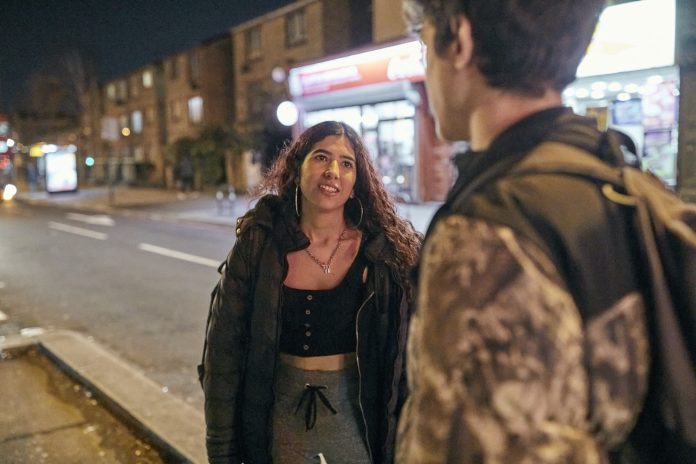In light of the anniversary of Sarah Everard’s death and the testimonies on violence against women that have come to light over the past year, Childline shares advice for teenagers on healthy relationships and sexual harassment.
What is sexual harassment?
Sexual harassment is when someone experiences unwanted behaviour of a sexual nature which, whether intended or not violates your dignity or creates an offensive environment.
At Childline, sadly we know that teenagers are often subjected to sexual harassment. This is something you may experience online, at school or somewhere else in your daily life.
During 2020/21, Childline dealt with 633 counselling sessions where the young person mentioned sexual harassment and 72 per cent of these counselling sessions were with girls.
Being sexually harassed can cause lots of difficult feelings and emotions. If you have been sexually harassed, you may feel uncomfortable and upset about what’s happened. Some young people for many different reasons may feel worried about sharing what’s happened with a trusted adult.
However, it’s important to remember that the sexual harassment is not your fault, and you deserve to be treated with dignity and respect. And you don’t have to deal with this alone.
If you have been sexually harassed, at Childline we’d advise you to:
- Speak to a trusted adult about what you’ve experienced. If it happened at school, tell a member of staff, they have a duty of care to protect you.
- Otherwise, you can tell a parent, carer, older sibling over the age of 18 or a Childline counsellor. Our counsellors are always here to listen and support you.
- Keep a record of what’s happened. You can then share this with a trusted adult to help them see and understand what you’ve experienced.
- If you are being sexually harassed online you can report this to the platform it’s happening on and block that person from sending you more messages.
- You can also seek support from your peers on Childline’s message boards. This is a monitored, safe space where you can connect with other young people and share experiences and this can help you feel less alone.
Healthy Relationships
Being in a new relationship can be an exciting time for young people and it’s normal to enjoy getting compliments, feeling special and safe or like you’ve got more confidence.
But relationships can sometimes change and it can be hard to know when things are starting to go wrong.
It’s important to remember that in a healthy relationship someone shouldn’t try to control you. Controlling or threatening behaviour can be physical, sexual, emotional, financial or psychological.
Instead, in a healthy relationship you should have:
- Good communication
- Mutual respect
- Trust
- Honesty
- Equality
- And you should be able to be yourself
https://ds.thisiswomenswork.co.uk/how-to-spot-the-warning-signs-when-your-relationship-doesnt-feel-right/
It’s also important to remember that the person you are with shouldn’t pressure you into doing anything sexual that you aren’t ready to do. Consent is important and it’s essential that you remember that you can stop giving consent at any point. It’s also important to remember that everyone is different and that if you aren’t ready to have sex with the person you are with, that’s ok and they should respect that.
If you are unsure if your relationship is healthy, we’d encourage you to speak to an adult you can trust and share the behaviours you are concerned about.
If you then do decide to end that relationship it’s important you:
- Don’t blame yourself
- Plan what you want to say and focus on your feelings
- Meet in a neutral place with other people around to ensure you are safe
- Plan how you’ll get home safely and let a family member or friend know where you are going
- Look after yourself and do things that you enjoy and make you feel good about yourself
Childline is always here to listen and support young people. You can speak with one of our trained counsellors on the phone on 0800 1111 or online at childline.org.uk
